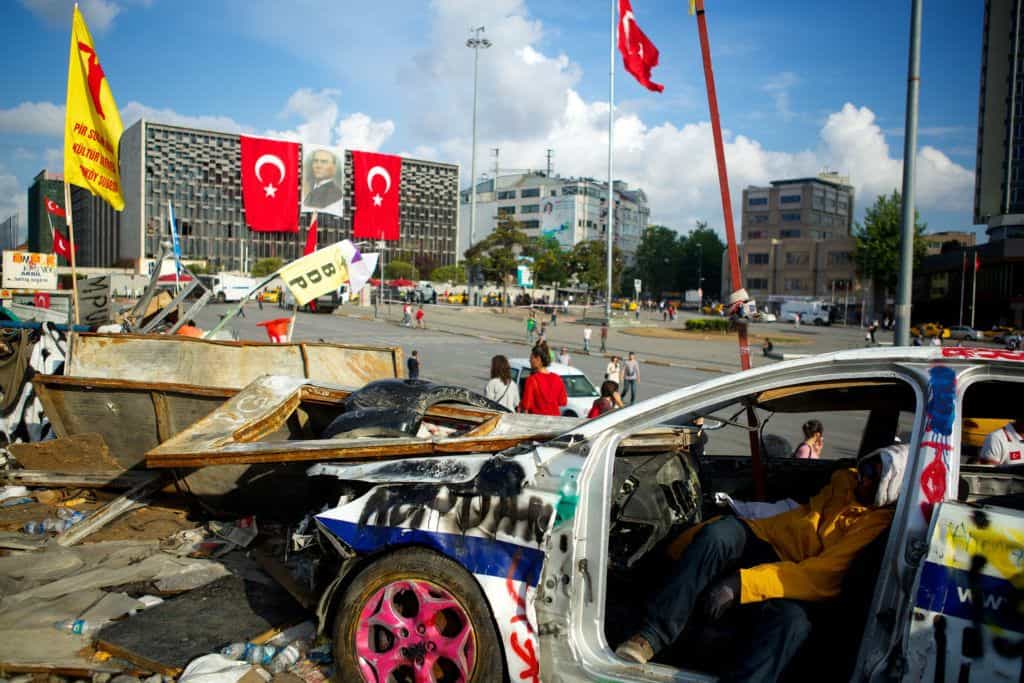1. The dramatic events surrounding the protests at Gezi Park in central Istanbul in the summer of 2013 have opened up a new chapter in the evolution of democracy in Turkey. The protests, and the media controversies that followed, highlight a growing crisis for press freedom and journalism across the country.
2. This report reveals how the media system is subject to unacceptable levels of interference from government and business interests. Distorted media coverage of the Gezi protests and the subsequent political backlash against critical and independent voices inside journalism have exposed corrupt links between media, politics and business that pose a dangerous and continuing threat to editorial independence and press freedom.
3. There is a well-established culture of self-censorship in journalism, which has its roots in a long history of legal, political and violent pressure on media. This creates a distorted information landscape which undermines efforts to strengthen democracy and pluralism at all levels of Turkish society.
4. This self-censorship is a consequence of the structure of media ownership, developed over the past 20 years, which has created a pool of self-interest for politicians and business leaders, and which in turn compromises ethical journalism.
5. The EJN finds that the lack of transparency in the ownership and operations of media and the self-serving nature of relations between business and politics plays a far more significant role in explaining the failures of mainstream journalism in Turkey than the individual ethics of journalists.
6. The situation is made worse through the intemperate and often intolerant voice of government, most stridently represented by the Prime Minister Recep Tayyip Erdogan, which encourages polarisation in society and which creates a fearful atmosphere for the exercise of journalism.
7. In this tense environment dissident voices inside journalism have been targeted and many journalists have been dismissed or forced to quit their jobs. At the same time there have been attempts to stifle criticism expressed through social media. In particular, the adoption of a controversial law on internet use, in February 2014, raises new fears for free speech protection in the country.
8. Nevertheless, the report also reveals a growing resistance within journalism and fresh determination to confront the Turkish media crisis.
9. Journalists and editors, dismayed by the lack of editorial freedoms, the absence of investigative journalism and the casual culture of self-censorship are aware of the need to work together in support of a new national dialogue and partnership to strengthen the craft of journalism.
10. In support of this process the EJN recommends more training in editorial leadership; the strengthening of professional associations; and the promotion of transparency and good governance in media based on principles of self-regulation.
11. In particular, the EJN recommends the Turkish media community to adopt practical actions that will:
• Promote and strengthen systems of self-regulation inside media, including transparent systems of good governance;
• Strengthen dialogues between traditional journalism and online media on the need for responsibility in the use of information and for ethical content across the public information space;
• Support programmes to strengthen independent professional associations of editors, owners and journalists;
• Consider how best to create independent, credible and effective national systems of self-regulation of journalism covering all platforms of media.
12. Although media professionals have a specific responsibility to actively combat internal and external threats to editorial independence they will not succeed unless the government and the political community also do their part.
13. The Government should promote media policies that will strengthen press freedom and should hold an urgent review of all laws that are currently used to restrict or inhibit free journalism and should repeal all laws that are damaging to free speech and which have a chilling effect on the exercise of journalism.

Gregg Carlstrom – Entrance to Gezi Park – With Ataturk looking down from a distance. (CC BY-NC 2.0)